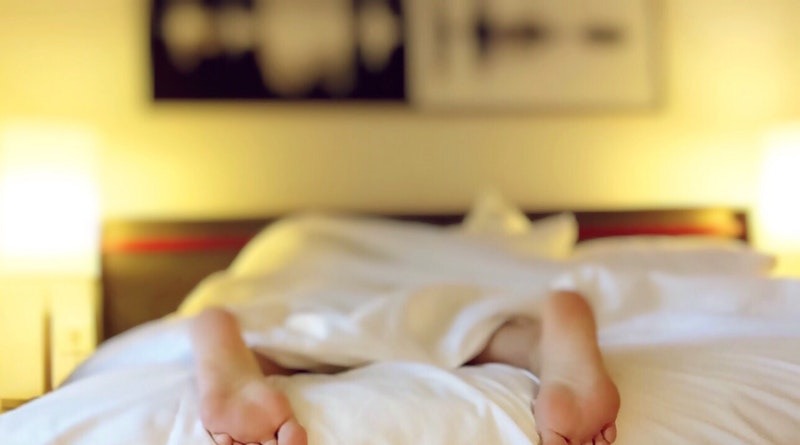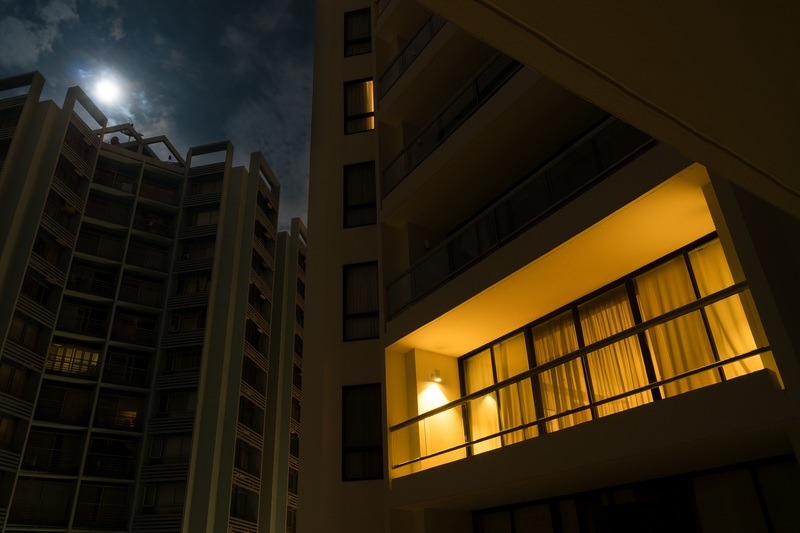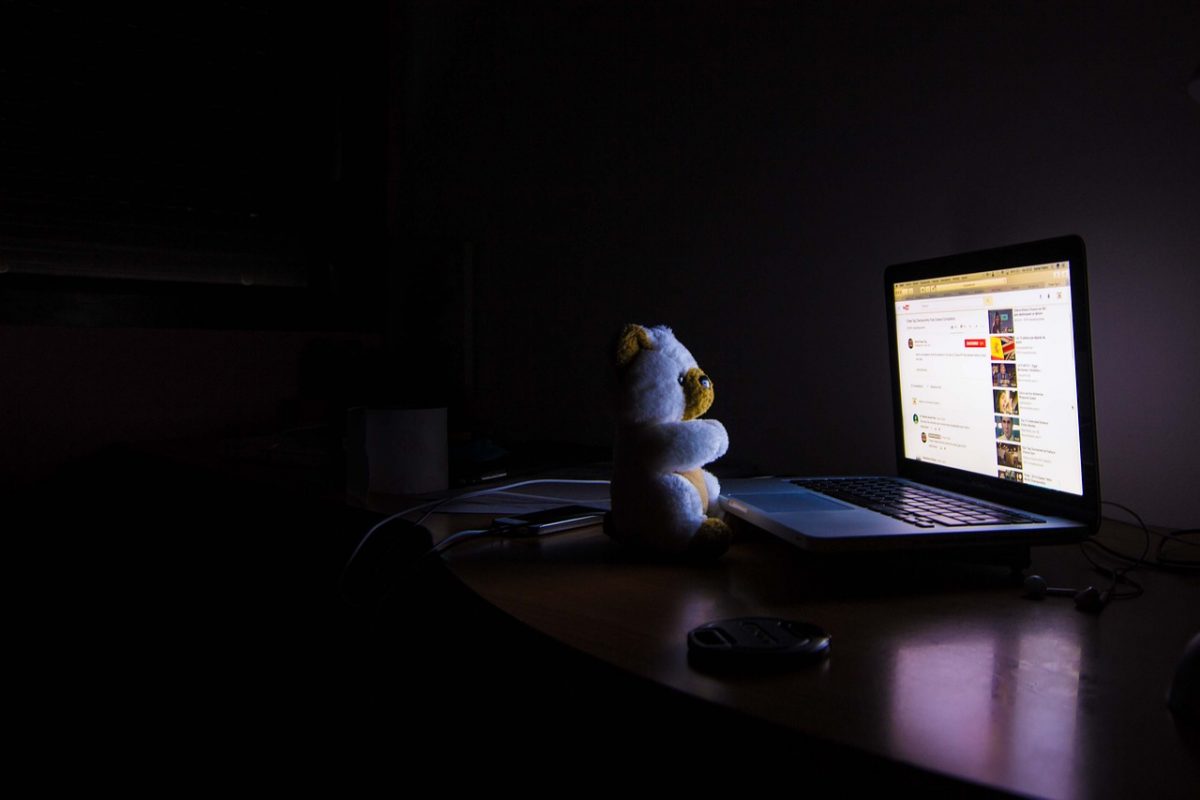How Insomnia Affects Your Life (And What You Can Do About It)

We all like to think that we live a healthy life. We work out whenever we can. We eschew the salty, sugary and fatty temptations of the work vending machine and the rush to the local fast food joint on “fat Fridays”. We make sure to eat at least 5 portions of fruit and veggies a day, drink plenty of water (some of it doesn’t even contain ground up coffee beans) and even make an effort to get out of our seats at least once every hour to help mitigate the disastrous effects that too much sitting can have on our health.
However, there’s one crucial aspect of our health that many of us, even those who purport to lead a healthy lifestyle) are drastically overlooking. Our sleep. Unfortunately, given the inherently fast-paced and stressful realities of modern living, too many of us have come to regard sleep as a luxury. We get what we can, where we can, little imagining that it could have a wide range of adverse effects on our health and our lives.
The chances are you aren’t getting enough sleep!
By rule of thumb adults of working age need 7-9 hours of sleep every day to maintain good physical and mental health. Children and teens need even more, which is why it’s so important to get the kids to bed on time (and also because their bedtime inevitably impacts on your own). Be honest with yourself, now. When was the last time you got more than 7 or 8 hours of sleep? If you’re anything like the average American you likely get around 6.8 hours of sleep a night. That means around 50% of us aren’t getting nearly enough sleep.
While we may be able to get away with one or two nights without enough sleep, when we are chronically under-sleeping this can change our sleeping patterns significantly and this, in turn, may lead to insomnia, where we are able to get little or no restful sleep at night.
When insomnia becomes chronic- keeping us from a restful night’s sleep for months at a time, it can have a devastating effect on our health which in turn can affect us in a range of negative ways throughout our day to day lives… which in turn can exacerbate our health problems.
Most notably…
It makes you prone to anxiety and stress
A lack of sleep elevates your body’s production of the stress hormone cortisol. Don’t forget that your body still thinks it’s living in the paleolithic era and still needs to contend with fierce predators and natural disasters on a regular basis. As such, if you’re not sleeping your body will assume that it’s because impending doom is only just around the corner and will elevate stress hormones to keep you in the “fight or flight” state that kept us alive before we started building civilizations and playing Candy Crush Saga on our iPhones.
As such, a chronic lack of sleep can make us constantly feel stressed, anxious and agitated. It can make small problems at work seem insurmountable and make us overreact to even the mildest of stressors.
Thus, when we don’t get enough sleep night after night, or even no sleep at all, it can make us extremely vulnerable to anxiety and emotional volatility. Which brings us to…
It can ruin your relationships and turn you into someone you don’t want to be
A lack of sleep can make us extremely difficult to live with and place a strain on even the happiest marriages and relationships.
When you don’t get enough sleep, it has the potential to turn you into someone you’d much rather not be. It can make you overreact to disagreements. It can make you quick to anger. It can make concentration harder making it difficult to hold a conversation and make us generally way less fun and rewarding to be around. What’s more, the hormonal fluctuations caused by insomnia can also impede sexual function and cause a loss of libido in men and women which can also drive a wedge between you and your partner.
Once again, all the added stress that comes from marital friction can exacerbate the trouble you have sleeping and it fast becomes a downward spiral.
You’ll start making mistakes at work
Insomnia can make it extremely difficult to concentrate. It slows down our thought process, making it harder to stay focused and motivated as well as overlooking the little details that can lead to mistakes at work. This can lead to frustration and a loss of job satisfaction as well as strained relationships with bosses and colleagues which can only exacerbate stress levels and keep the wheel turning. If you drive or operate heavy machinery for a living, it’s not hyperbole to say that chronic insomnia can lead to fatal mistakes.
What’s more, rather than eating healthily and staying hydrated, many of us will try to overcompensate by chugging mug after mug of coffee throughout the day. While we might experience a brief surge of energy and alertness when the caffeine kicks in, we may actually find ourselves feeling drowsy after our fourth or fifth espresso shot. This is because caffeine blocks adenosine receptors which can make you feel tired.
You’ll start developing really unhealthy eating habits
A range of studies links insomnia to an increased risk of obesity. When we don’t get enough sleep, it can stimulate our body’s production of ghrelin AKA the hunger hormone. This can cause us to crave fatty, salty foods and refined carbohydrates like white flour and (of course) sugar for instant satiation.
These foods make our blood sugar levels spike so we feel intensely satisfied after eating them but come crashing down a few hours later. This combines with the fact that cortisol makes us store more fat on our bellies (as well as dangerous visceral fat around our organs) can lead to an increased weight gain.
You’ll start looking in the mirror and thinking “who are you?”
Weight gain notwithstanding, we will often wear the effects of insomnia on our faces, causing concern amidst friends, family and colleagues. When we don’t get enough (or any) sleep, it can lead to a lack of proper lymphatic drainage resulting in puffy sleep deprived eyes. And because when we’re in a state of stress we divert oxygen away from the skin to our other organs that results in darker, less oxygenated blood and thus dark circles under our eyes where the skin is thinner.
So, how do we get you sleeping again?
The good news is that there are a number of ways in which you can regain your nights of restorative sleep and take back your life. But as with making any change in our health, there’s a right way and a wrong way to do it….
Don’t automatically reach for sleeping pills
We in the western world have been conditioned to reach for medications as a first mode of recourse. However, sleeping pills are problematic for a variety of reasons. Not only can they be addictive, but they can also induce a range of side effects. What’s more, they don’t even provide the kind of nourishing sleep that your mind and body need.
Instead, think about ways in which you can change your lifestyle to be more conducive to getting the restful sleep your body needs. And as you grow more and more reliant upon them, your body will inevitably build tolerance and you’ll be back to square one.
Here are some much healthier ways to get your sleep patterns back on track…
Rethink your bedroom
Your bedroom could be keeping you from a good night’s sleep, especially if it’s too warm and filled with screens. Move the TV to another room. Charge your iPad somewhere else and use your phone only if it doubles as your alarm clock.
Use bedding, mattress, and pillows made from natural fibers as these will be more apt to keep you cool and prevent you from waking up during the night because you are too warm. What’s more, rather than leaving the window open (which can provide the perfect breeding ground for bacteria) try installing a tropical fan that can mimic island breezes and lull you gently to sleep. If silence is preventing you from getting to sleep, try playing nature sounds or white noise.
Kick the caffeine
We wouldn’t expect you to deprive yourself of delicious, life-affirming coffee. But if you want to limit the impact of insomnia on your life we implore you to consider switching to decaf. Decaf coffee isn’t what it was a few decades ago. It tastes just as good and you can chug away safe in the knowledge that you’re slowly freeing yourself from one of the most addictive drugs you can pick up from a supermarket shelf.
Exercise… it’s not negotiable!
Finally, as unthinkable as the prospect may be when you awaken exhausted from what little sleep you’ve managed, try to frontload your exercise into your day. This will leave you with less room for excuses not to do it later and help you to get your day off to a bright start. Exercise helps to alleviate stress and correct your body’s natural rhythms to ensure that, for the first time in a long time, you’re actually sleepy when your head hits the pillow.
What's Your Reaction?
Newly middle-aged wife of 1, Mom of 3, Grandma of 2. A professional blogger who has lived in 3 places since losing her home to a house fire in October 2018 with her husband. Becky appreciates being self-employed which has allowed her to work from 'anywhere'. Life is better when you can laugh. As you can tell by her Facebook page where she keeps the humor memes going daily. Becky looks forward to the upcoming new year. It will be fun to see what 2020 holds.









